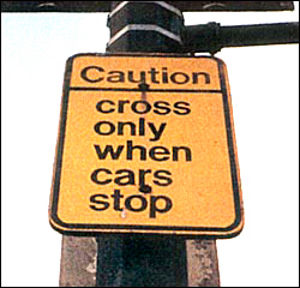7 Questions to Ask Yourself When Interviewing Recent Grads for a Sales Position
- Jeff Schneider, Sandler Training
- Aug 3, 2017
- 3 min read
Looking to hire the best and brightest salespeople fresh out of college? Here are 7 critical questions to ask yourself during the interview.
It’s that time of year again. Millions of educated and ambitious Millennials are about to be unleashed on the working world, many looking for entry-level sales positions. While some companies won’t hire candidates without a proven track record, many do. After all, entry-level candidates are economical hires, can be easily groomed, and don’t need to unlearn bad habits.
While there’s plenty of advice out there for candidates seeking a first-time sales job, there’s not much guidance for the person interviewing them. (That’s where we come in.) The fact is, making first-time hires requires a special kind of expertise. With that in mind, here are seven critical questions to ask yourself when interviewing a Millennial for a sales position.
1. How are their communication skills?
You can look to their past experience and job history for clues. Did they wait on tables, acting as the single point of contact for customer service? Did they lifeguard during summers, which involves decision-making and addressing conflict? Or did they simply put on a set of headphones, mow lawns and disconnect from the world?
Look to see if they can verbalize with professionalism what they can offer your company. Do they listen well? Do they make eye contact? Did they come to the interview with a pitch about themselves or, instead, with great questions?
2. Have they demonstrated accountability?
What have they done in the past that required accountability and dependability? Did they take on group projects in college classes? Assume leadership roles on sports teams? Direct activities in clubs? Most importantly, can they tell their “accountability story”?
3. How’s their personal energy?
The sales role is an energetic one, so soak in the energy of candidates as they sit across the desk from you. Do they seem engaged? Are they asking good questions? Were their college years filled with extracurricular activities, volunteer service, and internships? When you evaluate their backgrounds, always remember: Intelligence is important but so is passion.
4. Have they proven that they’re team players?
Yes, it’s important that candidates convince you that they can assume leadership roles. It’s also important that they show you that they can step back and function as part of a team. One question here is, “Why would anyone want you on their team?” Try to discern whether they could enlist the support of their team members as well as give support where it’s needed. Also remember that candidates who are good team players are also coachable, which is particularly important for recent graduates.
5. Are they competitive?
This is the flip side to the “team player” question. Since selling is all about drive and having fire in the belly, you’ll want to know if your candidates have a healthy competitive side. Evaluate them based on their past:Have they played sports? Participated in group activities? Nailed their grades and achieved Dean’s List? Also evaluate them in the moment: Are they making it clear that they really want the job? Are they talking about the next steps?
6. How do they deal with rejection?
In work as in life, you win some and you lose some. In sales, managing rejection without having it drag you down is particularly critical. When asked, candidates should be able to discuss with credibility and professionalism how they’ve handled rejection, citing an example or two. You’ll want to understand how they dealt with it and came back even stronger.
7. Have they gotten the fundamentals right?
Nailing the fundamentals is one of the easiest and most important parts of interview preparation. Unfortunately, it’s the part that most often gets ignored. For that reason, candidates who pay attention to the small details really stand out.
Take notice of how your candidates carry themselves. Did they come prepared? Did they research your company? Did they appear interested? Did they bring a portfolio with a list of topics to cover? Did they take notes? (If not, they’re saying to you, “Mr./Ms. Interviewer, nothing you’ve said to me has been remotely important enough to chronicle.”)
The fundamentals continue even after the interview. Smart candidates will follow up with every person they touched in the process with a thank-you note. They’ll customize the notes and make them personal, mentioning small connections they made with each individual such as being golf fans or attending the same university.
Millennials are at your door, waiting to take a job — and potentially make a career — with your company. We hope we’ve helped you choose wisely.
Source: Jeff Schneider, Sandler Training info@sandler.com




Comments